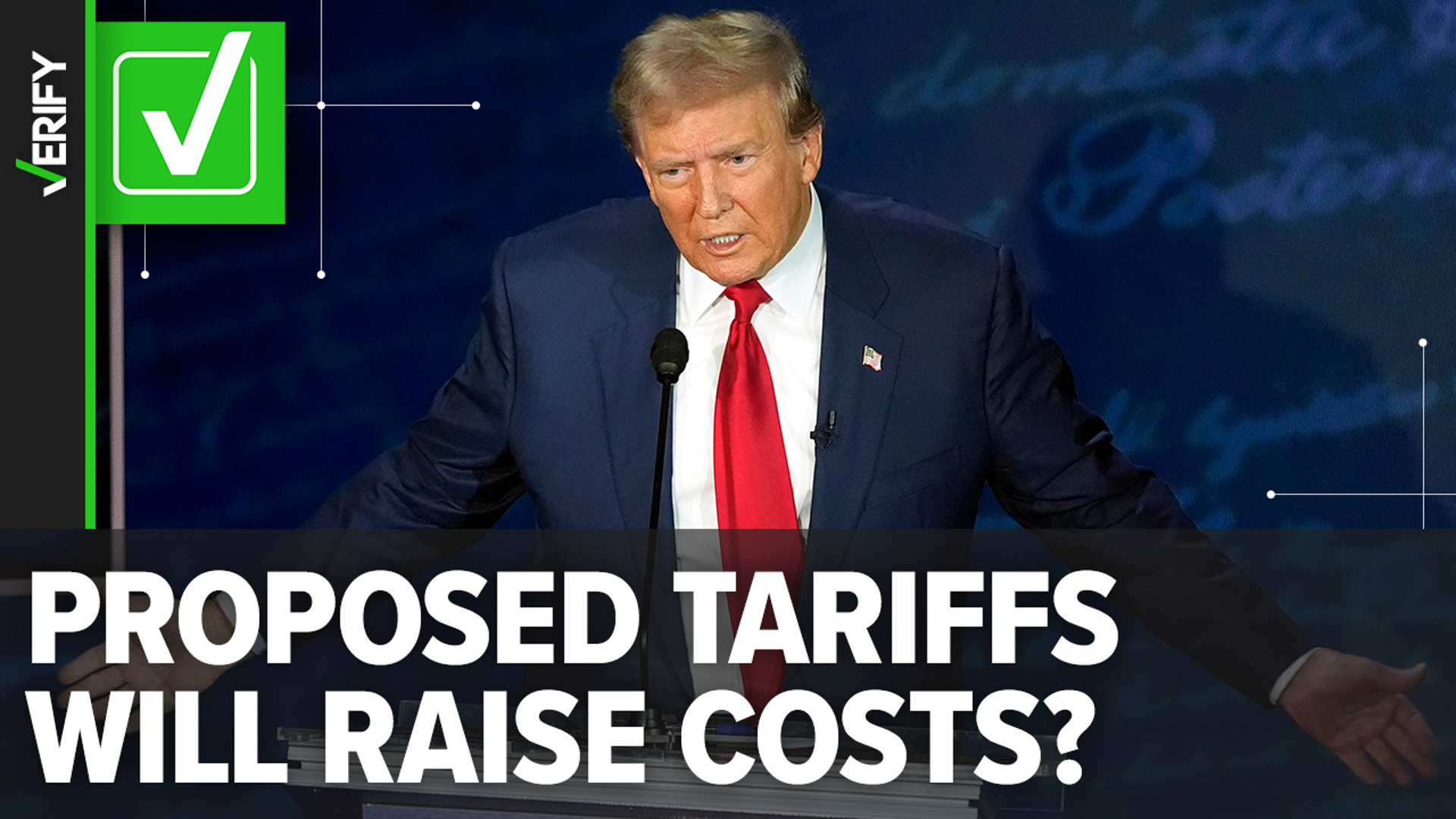China Trade Deal: U.S. Allies Still Facing Tariff Delays

Table of Contents
The Impact of Phase One Trade Deal on U.S. Allies
The initial Phase One trade deal, signed in January 2020, primarily focused on reducing tariffs between the US and China. This agreement, while significant, largely overlooked the concerns of many U.S. allies. The resulting impact has been far-reaching and complex, creating a ripple effect across international trade.
- Limited Direct Benefits: The tariff reductions negotiated were largely bilateral, meaning they did not automatically extend to U.S. allies. Many countries found themselves outside the scope of these reductions, leaving them to navigate a more challenging trade landscape.
- Complex Indirect Impacts: The shift in trade flows between the US and China resulted in unforeseen consequences for U.S. allies. Some experienced increased costs due to redirected trade flows, as businesses sought alternative suppliers and markets. Supply chains were disrupted, leading to production delays and increased costs.
- Lack of Tariff Exemptions: The absence of specific tariff exemptions for U.S. allies exacerbated the problem. This lack of clarity created significant delays and uncertainty, making it difficult for businesses to plan and invest. The ambiguous nature of the deal left many allies feeling sidelined and vulnerable.
- Trade Negotiations and Bilateral Agreements: The Phase One deal highlighted the need for more comprehensive trade negotiations that explicitly address the concerns of U.S. allies. Bilateral agreements between the U.S. and individual countries are proving necessary to navigate the complex web of tariffs and trade restrictions.
Specific Examples of Tariff Delays Affecting U.S. Allies
The impacts of these unresolved tariff issues are widespread. Let's examine specific examples to understand the real-world consequences:
- Example 1: The European Union: The EU has faced significant delays and increased import costs on various goods exported to the U.S. For instance, agricultural products like wine and cheese have experienced substantial tariff increases, leading to reduced sales and profitability for European producers. Estimates suggest a percentage increase of X% in import costs for certain EU products. This has resulted in retaliatory tariffs from the EU, further complicating the situation.
- Example 2: Japan: The Japanese automotive industry has been particularly affected. Tariffs on Japanese vehicles exported to the U.S. have led to higher prices for consumers and reduced competitiveness for Japanese automakers. This has had a knock-on effect on related industries and supply chains within Japan.
- Example 3: South Korea: South Korea has experienced delays in exporting certain electronic components and technology products to the U.S. The South Korean government has responded by actively seeking bilateral trade agreements with the U.S. to alleviate these issues and protect its export-oriented economy. The uncertainty has led to a decrease in investment and slower economic growth.
The Role of WTO Dispute Settlement Mechanisms
The World Trade Organization (WTO) plays a crucial role in resolving trade disputes. Its dispute settlement system provides a framework for member countries to address trade barriers and unfair practices. However, the effectiveness of WTO mechanisms in addressing tariff delays affecting U.S. allies has been limited. The protracted nature of WTO dispute resolution processes and the increasing reluctance of some nations to comply with rulings present considerable challenges. Affected countries are exploring various legal avenues, including bilateral negotiations and potentially challenging the tariffs under existing trade agreements.
Long-Term Economic Consequences of Prolonged Tariff Delays
The prolonged uncertainty surrounding tariffs has significant long-term economic consequences for both the U.S. and its allies.
- Global Trade Disruption: Persistent trade friction and uncertainty discourage investment and hinder the growth of global trade. Businesses become hesitant to expand operations or commit to long-term contracts.
- Inflation and Consumer Prices: Increased import costs due to tariffs inevitably contribute to inflation and higher consumer prices. This disproportionately affects lower-income households who spend a larger percentage of their income on essential goods.
- Investment Uncertainty: The lack of clarity and stability in the international trade environment creates significant uncertainty for businesses considering foreign direct investment. This discourages investment, hinders economic growth, and reduces overall competitiveness.
- Supply Chain Disruptions: Tariff-related delays and uncertainties significantly disrupt global supply chains. This leads to increased production costs, reduced efficiency, and potential shortages of goods.
Conclusion
The China trade deal, while a significant step, has left many U.S. allies facing protracted tariff delays. These delays cause considerable economic disruption, highlighting the interconnectedness of global trade and the need for comprehensive solutions. The ongoing challenges underscore the importance of continued dialogue and cooperation to address lingering issues within the international trade framework. The lack of clear and consistent application of the Phase One agreement's provisions has created significant instability in global trade.
Understanding the complexities of the China trade deal and its impact on U.S. allies is crucial for businesses and policymakers alike. Stay informed about the latest developments in international trade and advocate for policies that promote fair and efficient global commerce. Learn more about how tariff delays are affecting your industry and explore strategies to mitigate the risks associated with ongoing trade uncertainty. The future of global trade hinges on finding solutions that address the concerns of all stakeholders, not just the major players.

Featured Posts
-
 Two Killed In Mexican Navy Vessels Brooklyn Bridge Impact
May 19, 2025
Two Killed In Mexican Navy Vessels Brooklyn Bridge Impact
May 19, 2025 -
 Scarlett Johansson Colin Jost And The Lost Ring A True Story
May 19, 2025
Scarlett Johansson Colin Jost And The Lost Ring A True Story
May 19, 2025 -
 Ukraine Faces Massive Drone Assault Russia Launches Unprecedented Attack
May 19, 2025
Ukraine Faces Massive Drone Assault Russia Launches Unprecedented Attack
May 19, 2025 -
 Increased Rent After La Fires A Selling Sunset Star Speaks Out
May 19, 2025
Increased Rent After La Fires A Selling Sunset Star Speaks Out
May 19, 2025 -
 Container Shipping Payden And Rygels Expertise On The China Us Route
May 19, 2025
Container Shipping Payden And Rygels Expertise On The China Us Route
May 19, 2025
